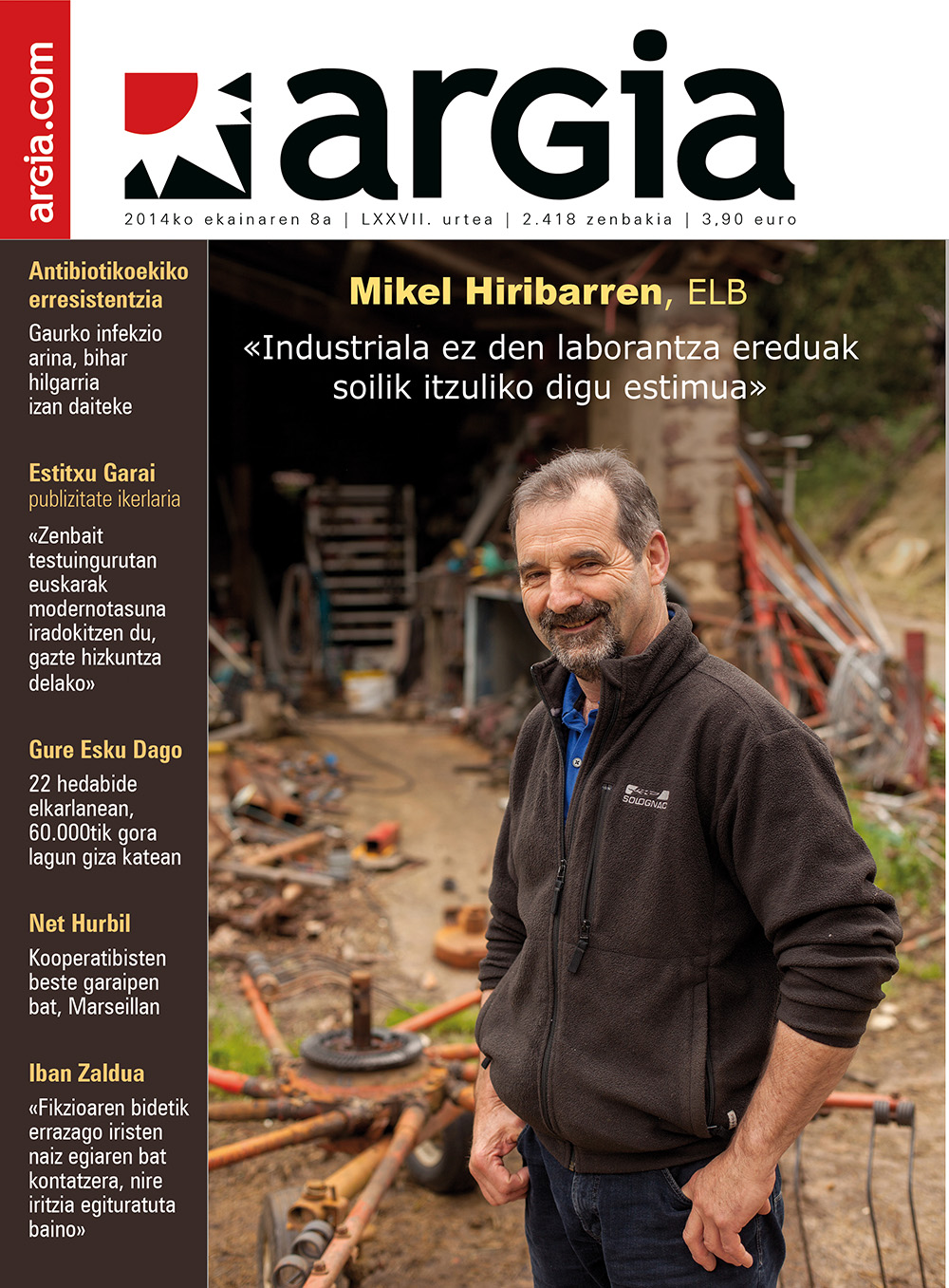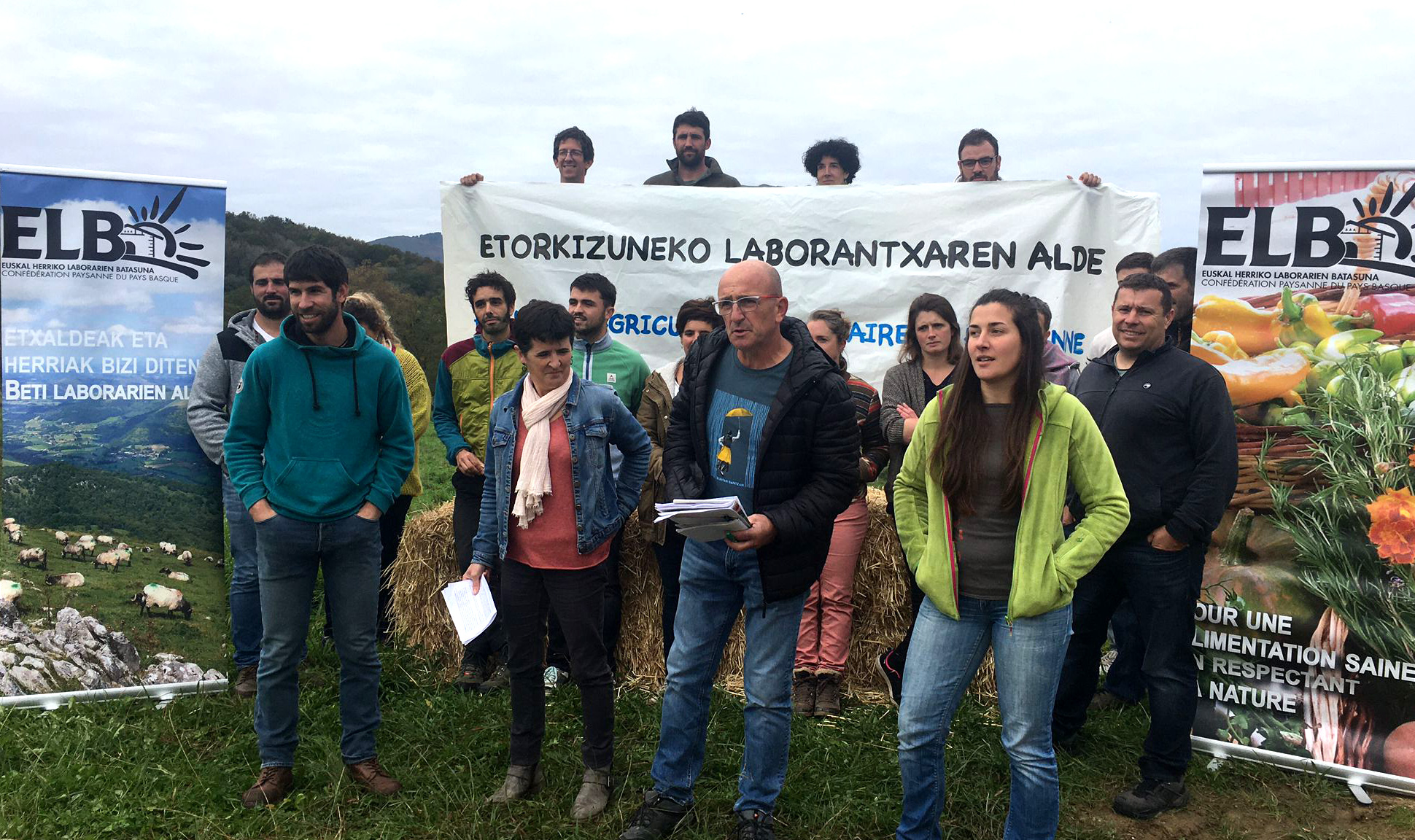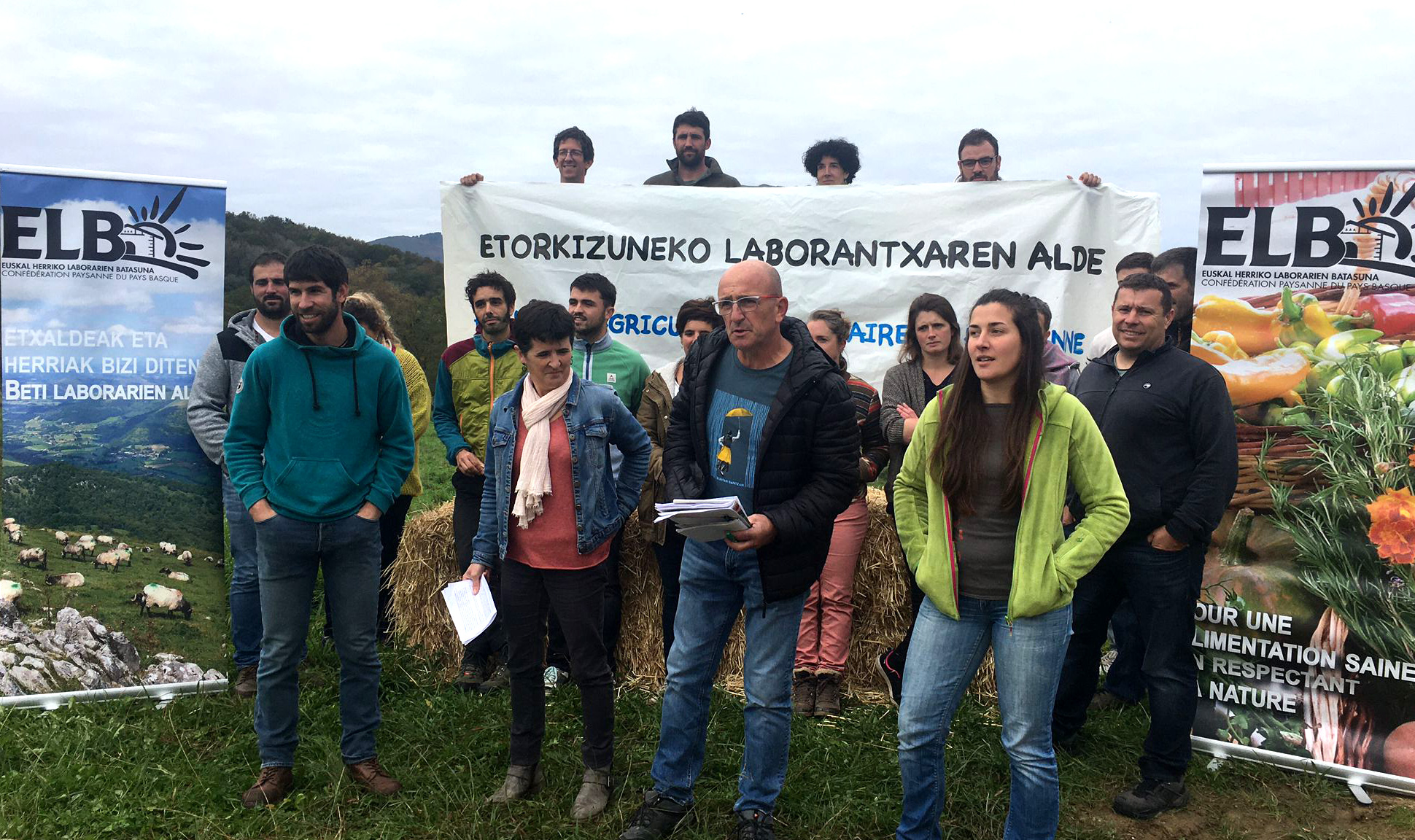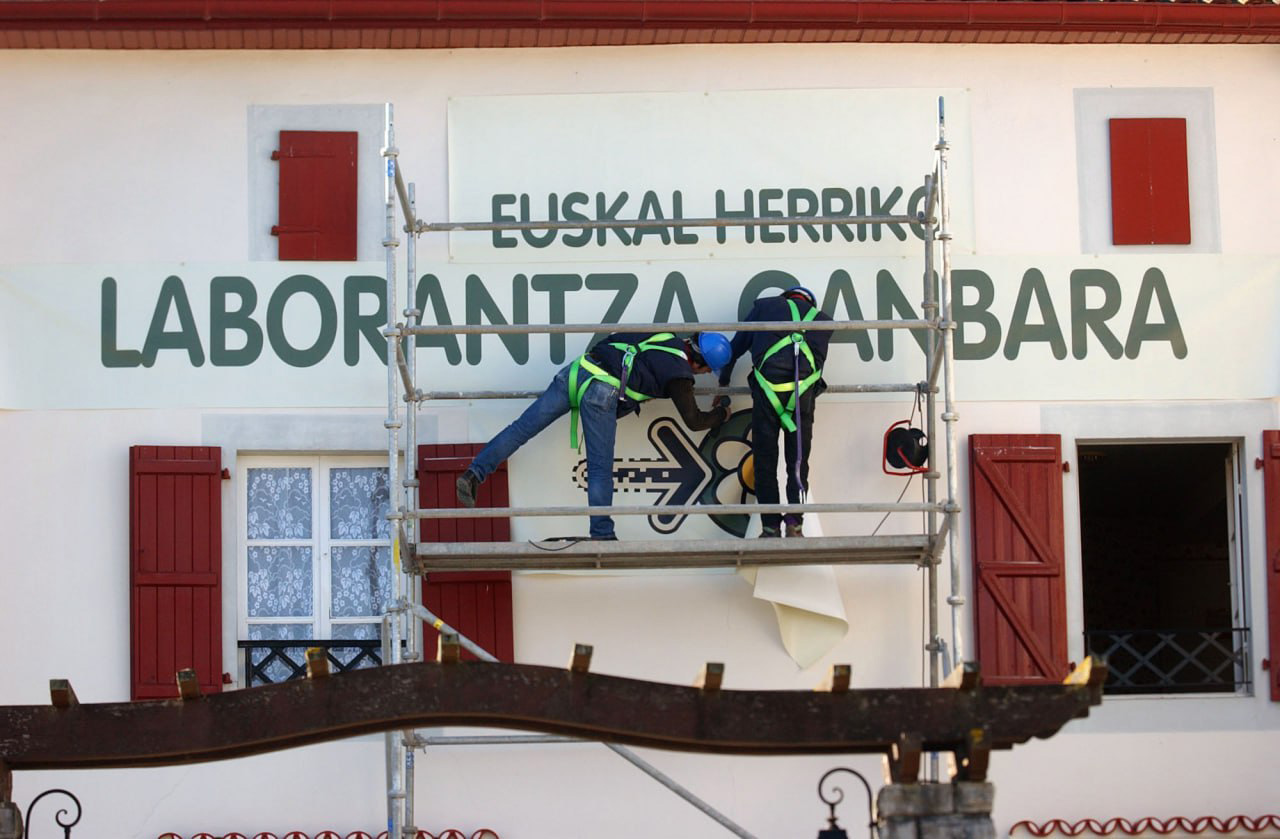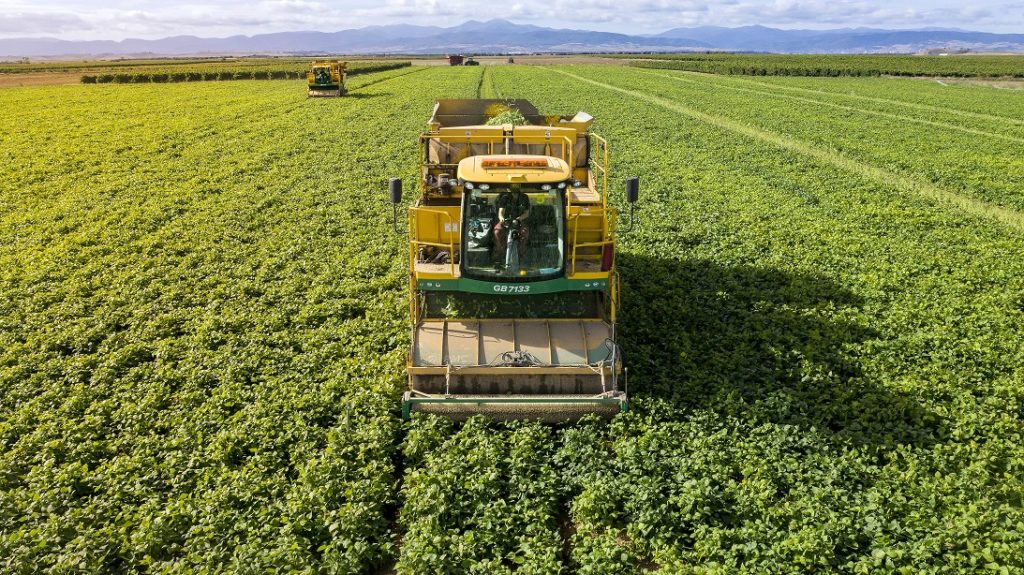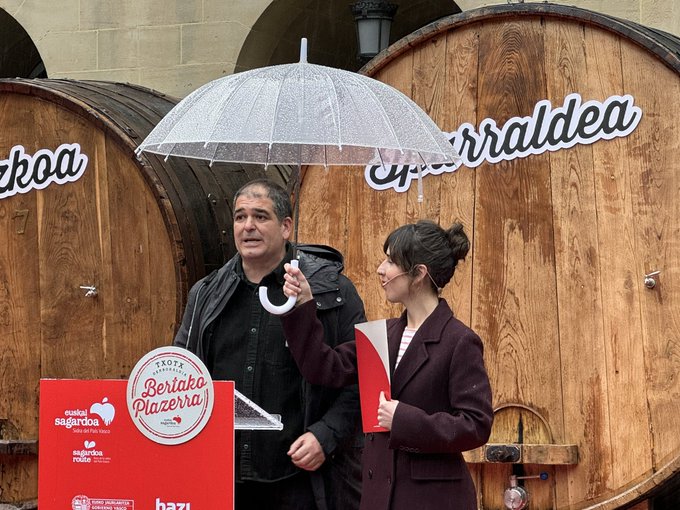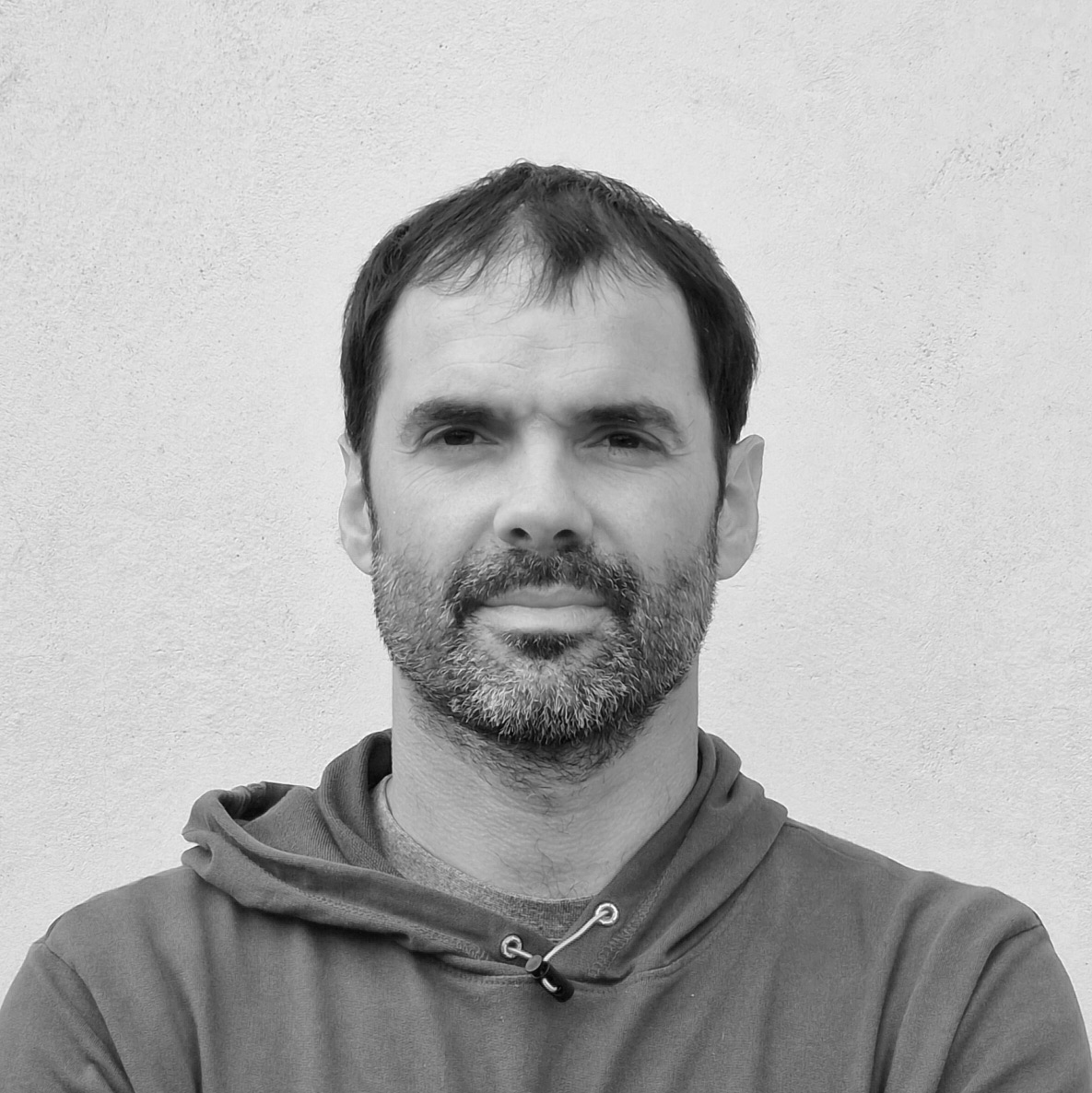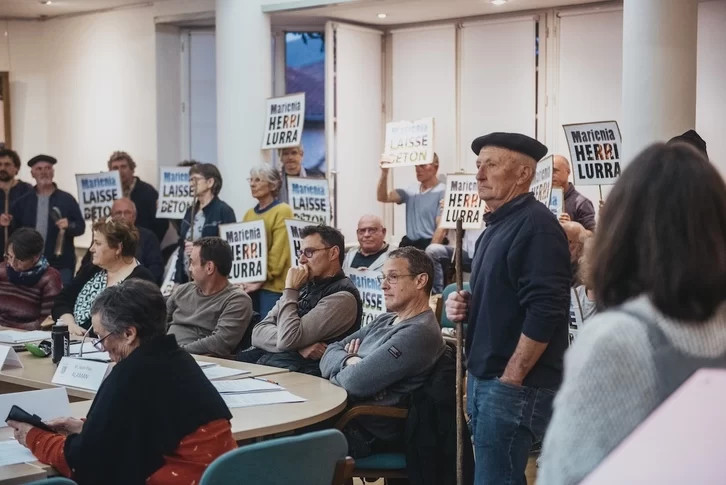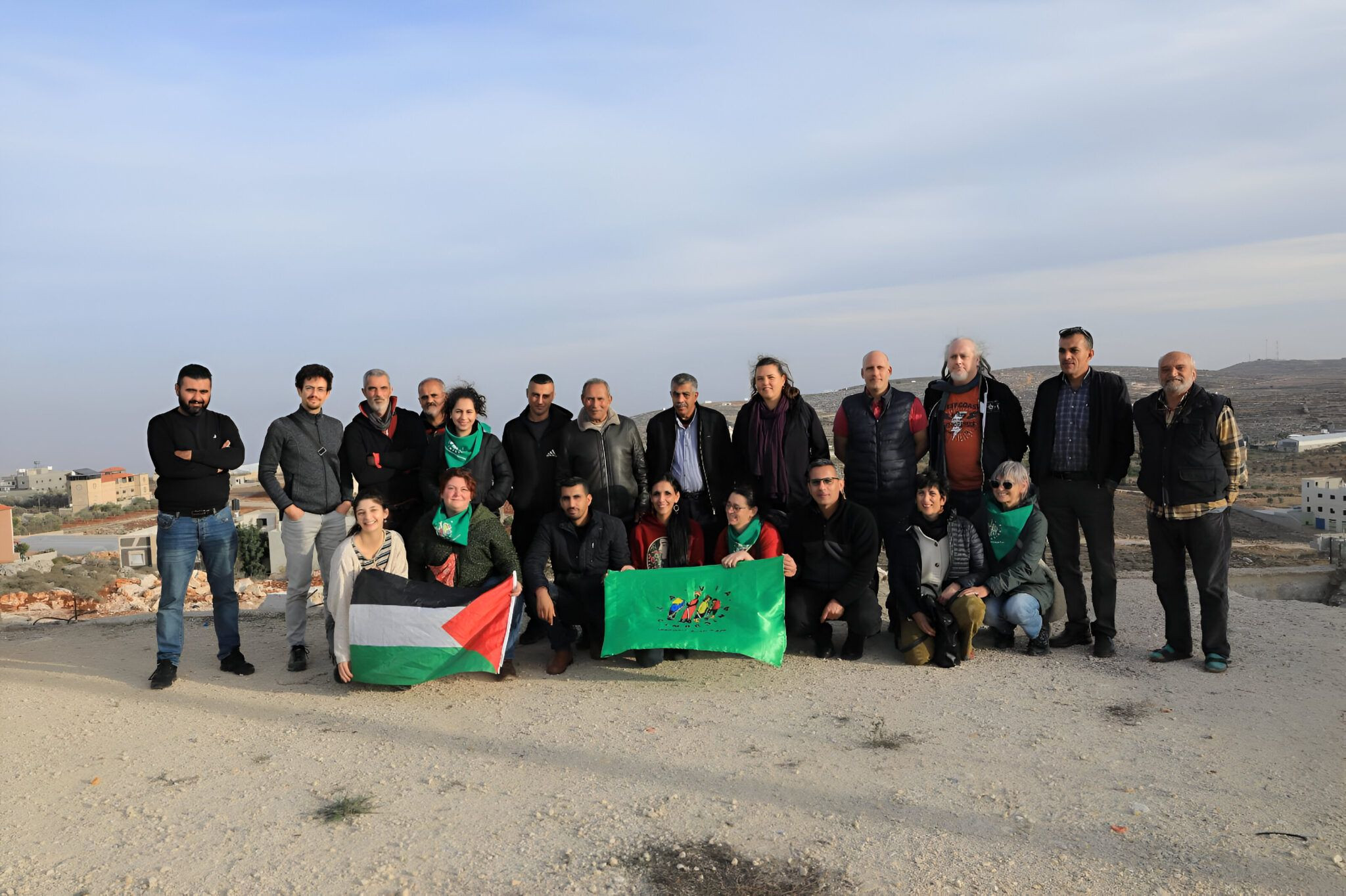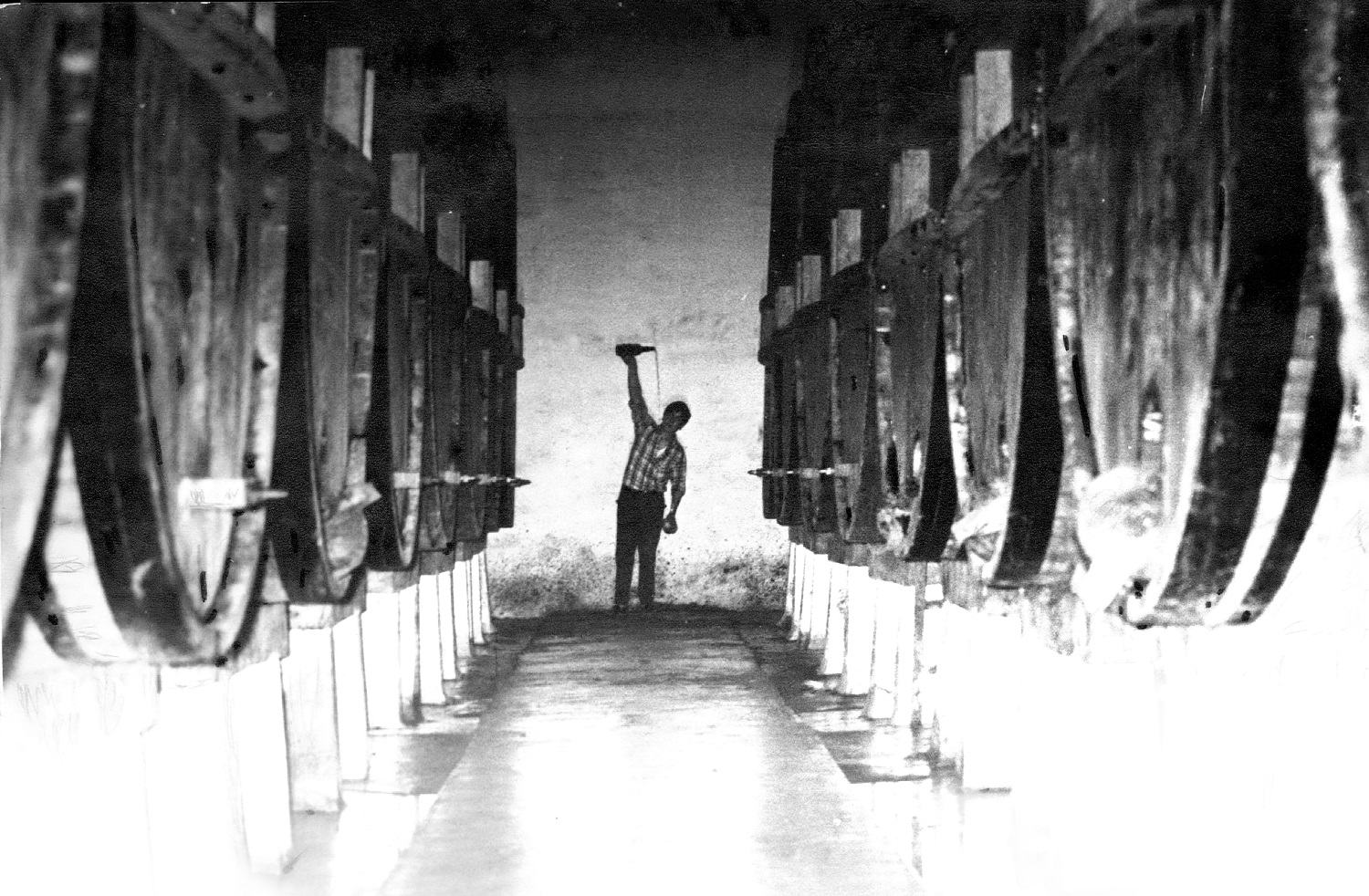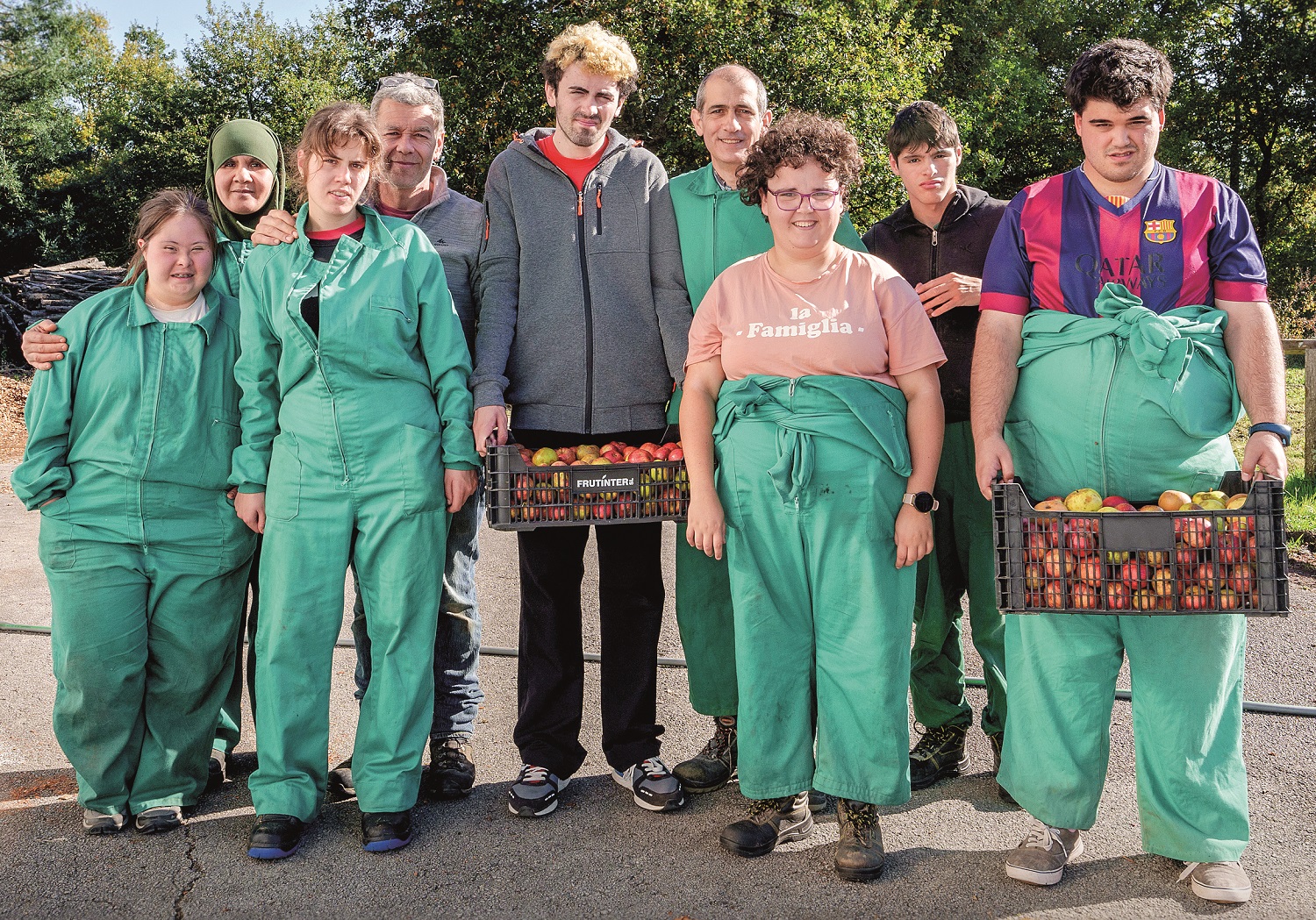"The North Estimates The Rich Out Too Much"
- “...And by taking the forces well, uniting our roots to the earth...”.
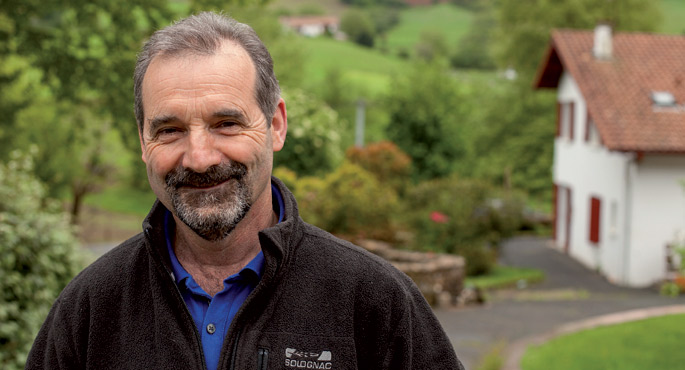
You studied seminarist...
The atmosphere here pushed him to it. Ours will be the last generation we enter at 10-11 years. I left the room next to the lower. I didn't care about doing agriculture or anything else, but because I believed that ignorance subjugated the rural world back then, I had clarity and I cared about studying. To put it all, I had a contradiction, because I thought that knowledge was what gave power, and at that time we didn't want power. I studied sociology for a couple of years, and since then I was called the mili. I rejected military service and, taking advantage of the figure of a conscientious objector, worked in a Zuberoa association helping small farmers. On 26 March 1980, I went back to my parents' farm. A pastor friend, who had just lost his life at the hospital in Baiona as he exploded the bomb he was carrying. They were years of militancy, both in the Basque Country and in the agricultural trade. In many villages, young people began to mobilize to get back to work and to use the rural world with our hands. Hence come the creative reflections on the ELB, the cooperative movement, the beginnings of IK, the outbreak of a cultural environment... The years 1975 to 1980 have been very fruitful in Iparralde. So one form of militancy was to focus on agriculture.
I suppose that their militancy would consist of starting from a certain form of cultivation.
It was not an arbitrary choice. In 1980, houses were not included in the market dynamics, home production predominated. We have started in the next ten years. Compared to the rest of France, it is noticeable that in Iparralde there have been many people in very small and small dwellings. All politicians say that we are also very special when it comes to agriculture. In the rest of the counties they need 70 or 100 hectares to be able to live from agriculture, here we have shown that it is possible to live with 15 or 20 hectares. They all admire the dynamics here, but they have no intention of pushing it in other regions. If we had entered the French logic from the outset, we already know what we would be now. Perhaps it has saved us from the fact that we have been bouncing back into the dynamics of the market. The drift of the liver sometimes gives a big advantage.
After the Second World War, French cultivation assumed the mission of imposing the mentality of producing and feeding the world. What is left now?
Then there were millions of farmers in France, now there are 500,000 left. If action had been taken otherwise, if jobs had been prioritised, a completely different agricultural model would have been created. But at that time it was special, the industry needed arms to work, and the labourers were reliably attracted to them easily. However, this has been over a long period of time, the industry no longer needs the arms of the farmers, and there is no longer any farmer left. How do we change the situation? How do you convince politicians that it's time to go to another model? Confédération Paysanne and ELB propose a popular and sustainable agriculture. It is a model in the peak that retains men in the crop or rejoins them to the earth, and that joins the food sovereignty coming from Via Campesina. The powers are not few. In a country such as France, EUR 10 trillion is allocated each year from Europe. If the separation system were fairer, if it were not adjusted to the number of land and livestock, we would need very different margins in less than ten years. But politicians only admire economic growth, the maintenance of exports in the name of the balance of the French foreign economy, and everyone thinks that this peasant world must be isolated in order to be a modern country. That is no small thing, and the majority union in France, the FNSEA, is the breeder of that, and the networks of multinationals are in the dark.
As long as agricultural policies are thought of by politicians and multinationals, how can we make light in the dark?
It is difficult, because agricultural policies are not only done by big politicians and firms, but are supported by the farmers who are in their hands. In our country, I do not know if our opponents are in the hands of the signatures, but in France, the peasants who lead the trade, who go hand in hand with the government, depend on the signatures in one way or another. This leads to incongruous and incomprehensible contradictions. In the North, there are representatives of farmers who promote the policy radically contrary to our FNSEA territory, recognizing in private that the solution is a popular and sustainable crop. In this respect, France’s recent ban on GMOs from maize (GMOs) is a victory. It is no small thing for a social and peasant world to delay the spectre of the multinationals. However, the war against multinationals never ends. An example of this is the economic dealings between Europe and the United States. If such confidential treatment is passed over, the signatures will triumph and they will be able to do whatever they want over States in the countries. A short while ago, François Hollande presented us with his vision of the future in Paris, and although the word was not mentioned, we listened to the echo of the GMOs. Winning is one thing and adding achievements is another.
Why is the cultivation in general and the craft of the farmer discredited?
We must work on the farmers' estimate. It will not be done just with words. Due to the type of cultivation that has taken place in recent years, society sees us as an opportunistic and harmful category, rather than being a good producer and guarantor of good food. However, in Euskal Herria, and especially in Iparralde, society is more sensitized, knows that quality productions are promoted that are friends of complement. However, it is not enough to change the view of society. For many coastal residents, Itsasu is the last limit for the interior, so the farmers and others who are here cannot be modern. We carry the cross of industrial agriculture on top. Condemning this type of cultivation is one of our works, as only another crop model will give us the estimate.
In search of another model, you launched the Basaburua Basket as AMAP or consumption group in 1998. Are the alternatives the simplest, most sensible and logical things?
We were four next-generation peasants who were intending to do something in common in the neighborhood. We didn't want to waste so much time in the markets, but we did want to maintain and cultivate a fair deal with people. We implanted in the plant the formula of bringing our baskets home, and although at that time it was anti-fashion, we are now in full splendor at the AMAP. However, the implementation of the PAM has been very difficult. People have to make a special effort, pay a little more... Today, we live it as normal, but for people it's a great opportunity to spend in a store full of options. This binds us together, makes us a mold. Farmers also make our purchases like everybody else, but there is a sales network in the hands of multinationals, the cultivation in the hands of multinationals ... What's left for us? That's why it's buying a militant step in the AMAP, giving up that endless choice. When you've thrown yourself into simplicity, it costs a lot to get out of it. Both farmers and shoppers have a lot of work to do. Meanwhile, poisoned food happens the same as smoking. The packages include “SMOKING KILLS”, but people continue to smoke.
In cigarette packets, as “what kills is smoking”, “Euskal Herria is not sold” appears on the walls of the new houses built on land that could serve agriculture.
I hope that we can move forward with our own hands and forces on the issue of land, but it is the politicians and the structures that deal with land that must do their job. From the outside, many people have come here, wealthy people, with a lot of power, and as long as the land around them is so successful, prices will be unbearable for us. We were talking a short time ago about the lack of appreciation of the labourers, because the North has too much affection for the rich from outside, and that is going to annoy us. When we were young, that was our anger, and I fully understand that it is also the anger of today’s young people. Year after year the wave grows and it will become increasingly difficult to slow down.
The wave you have created around the OECD and the Chamber of Commerce of the Basque Country is also growing. Do we realize what achievement is, what it means?
Not so much here, but going outside is enough to become aware of the dimension of what we are doing. Within our daily and busy dynamic, it seems to us that so much dedication and initiative drowns us, but outside they would all want to have what we have. The ELB and the tanneries, cooperatives, associations and farmers around it have an impressive life and level of militancy. That's what we're doing in our veins, and we're slowly changing agriculture, and maybe society. Our intervention in life is of great value. It is no coincidence that we are about to touch the bottom of agriculture in France, and that you have this dynamic here. To those outside I always explain that cultivation is not an isolated movement, that there are also ikastolas, popular radios, culture... I hold friends of my time, from agriculture to politics. Perhaps in politics, we are the weakest. Until recently, we have not entered the structures of power. They didn't let us in, but we took advantage of everything they left us free. Anyone who comes to the Basque Country from above Baiona immediately sees that this territory is unique. Faced with this uniqueness, one of our main concerns is the transfer of political training to the new generations. In the early 80's, we were heart-communists, we were thirsty for justice and equality, we believed that the dream of a more just society was possible. Today, we do not see what and how it will bring together young people around political training. That's what we're also playing our future.
The future of agriculture as it is played primarily in the common agricultural policy or in the negotiation of the CAP.
We are confident that European aid, the main guidelines for the current agricultural policy, will change. It is becoming increasingly clear where the criteria lead us so far, and if you like, politicians have the power to change that. It is not acceptable that the aid should be proportional to the number of hectares of each crop. We will continue to invest in employment and to promote our popular and sustainable cultivation, linked to food sovereignty. The choice of popular food in the village is essential for the coming decades. When politicians tell us that we have to start preparing the CAP 2020 from today, they recognise that the delivery system so far is reprehensible. There we shall measure the strength of the economic and multinational powers acting from the shadow. By 2020 distribution systems are badly signposted in the current molds. If what we suspect is true, through these liberal dealings between Europe and the United States referred to above, we have before us enemies with no heart and no soul, which can impose on us everywhere. We have to listen, because expressing it can seem sick to us, but we must not forget that as they build an increasingly spider network, we are increasingly flies in our normal lives. We must therefore strive to get rid of it as we can, and to return to the initial conversation, we can achieve it through wisdom.
Mikel Hiribarren. Itsasun sortua 1956an. Itsasuko Aroztegia etxaldean laborari, ELB-ko militante nekaezin eta 2013tik Frantziako Confédération Paysanne-ko idazkari nagusia da. 1998an, auzoko beste hiru laborarirekin, Basaburuko Saskia izeneko kontsumo talde edo AMAP modukoa sortu zuen, lehenetarikoa Euskal Herrian. Azken hamarkadetako laborari borroken ulertzeko ezinbesteko erreferentzia.
Azken hiru mende eta erdietan odol berekoak aterpetu dituen Aroztegia etxaldean hartu gaitu Mikel Hiribarrenek. Mami gehiago ez eman izanaz dolu, idatziz ahoz baino hobeki moldatzen dela desenkusatu da, elkarrizketa eta argazki saioaren artean, gazta saltzera abiatu delarik. Iparraldeko dinamikaren balioaz ohartzeko ez dagoela kanpora ateratzea bezalakorik, hemen ohartu ez arren Mixel Berhocoirigoin José Bovéren pareko mitoa dela... Alegia, deus ez esandakoek oihartzun egiten didate oraindik. Noiz jabetuko gara etxean daukagunaz?
Datorren astean Departamenduko Laborantza Ganbarako hauteskundeak ospatuko dira Ipar Euskal Herrian. Frantzia mailako FDSEA eta CR sindikatuez gain, ELB Euskal Herriko Laborarien Batasuna aurkezten da, "euskal laborarien defentsa" bermatzeko.
Euskal Herriko Laborantza Ganbera elkartearen hogei urteak ospatu zituzten asteburuan Ainhize-Monjolosen. 2005eko urtarrilaren 15 hartan sortu zuten Lapurdi, Baxenabarre eta Zuberoako laborantzaren garapena –hori bai, iraunkorra eta herrikoia izan nahi duena–... [+]
Departamenduko Laborantza Ganbarako hauteskundeen kanpaina abiatu da. Urtarrilaren 14an bozetara aurkezten diren hiru sindikatuen ordezkariekin bi oreneko eztabaida sakona antolatu zuten Euskal Hedabideek, osoki euskaraz.









